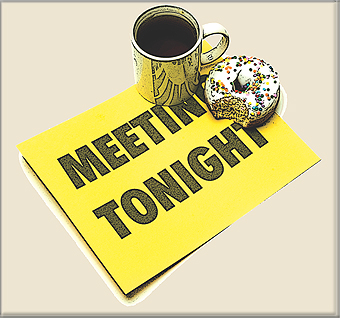Mass could use the hard dose of reality offered by those recovering from addiction.
I go to church every Sunday with a bunch of addicts.
Well, technically, I've been going to church alongside the addicts. For the past 10 years a Narcotics Anonymous group has been meeting in the church basement during our Sunday evening liturgy. They're also not really "addicts" but in recovery-though the unflinching honesty of their gathering leads me to believe that they wouldn't shy away from such a politically incorrect term.
That truthfulness-their acknowledgment of their powerlessness against addiction and surrender to a higher power-is why I return to them in my prayer at Mass from time to time. It strikes me that their 12-step liturgy cuts more deeply than does our Catholic one; just take a gander at those steps they're trying to work on. I for one am not sure I could survive the "searching and fearless moral inventory" (step four), much less "make direct amends to everyone I've harmed" (step nine).
I often wonder if any of us Mass-goers are as serious about what we're doing upstairs as the 12-steppers are downstairs. When I've at times had to go to the basement during their meeting, I'm always struck by the absolute silence that's observed while a member tells his or her story, as if the very Word of God is being proclaimed. Maybe it is. I always make a quick, quiet exit out of reverence for holy mysteries that do not belong to me.
It's tempting to think that is as it should be. Recovery from addiction is a life-and-death matter after all; some people don't get another chance. And in our common moral imagination, there is far more shame attached to addiction to drugs than to our other, non-chemical dependencies. Keep those "addicts" in the basement, if you please.
But our Sunday Mass is no less a life-and-death matter, making present as it does the life, death, and Resurrection of Jesus, a mystery that opens the way to our own exit from the tomb. And let us be honest: Our compulsions are in the final equation no less death-dealing than heroin; they're just more socially acceptable.
The slow poisons of violence, greed, and selfishness are just as surely killing us, and they have brought great harm to the world in the process. The current economic collapse, the world's unrelenting poverty, and constant armed conflict among nations are nothing if not the rock bottom after a long binge, though it seems the gravity of our collective situation has yet to dawn on the world as a whole, nor are we ready to acknowledge the personal choices that have brought us here.
Are any of us ready to admit to God and to others the exact nature of our wrongs (step five)? I fear we're not even willing to take step one and admit that our addictions to consuming and controlling have made the world completely unmanageable.
I sometimes wish the folks downstairs would invade Mass one Sunday and infect us with their knowledge that every "meeting" is a choice of life over death, one that must be made again and again. We gather as if our life depends upon it-because it does.
Indeed, all of us on Sunday night, upstairs and downstairs, are buried in rocky tombs at least partly of our own making. We're all trying to claw our way out, grasping the gift of life we celebrate in this Easter season, whether in the form of another day's sobriety or another week of discipleship.
Jesus' Resurrection occurred in an instant; ours comes one day, one meeting, one Sunday assembly at a time. Maybe that's why Catholics celebrate Easter for 50 days, and why there are 12-step meetings going on pretty much all the time. Staying out of the tomb is not something you can do alone.
I owe those folks downstairs a lot; their recovery has become for me an image of the hard slog of everyday salvation. Because of them I can't just show up at Mass and put in my hour. I have no choice but to let God's Word tell me the truth about myself, the truth that will make me free.
But more than that, because of them I can't let the Eucharist be my little oasis from the world, my shelter from its needs and problems. Just as that NA meeting wouldn't be worth much if its members went right back to abusing drugs after their hour was up, so Mass would be less than it should be if I didn't let the Eucharist become the pattern of my day-by-day life. If sharing simple gifts of bread and wine around one table has left me no less selfish or self-absorbed at 6:15 p.m. than I was at 5 o'clock, then I haven't even taken step one.
This article appears in the May 2009 issue of U.S. Catholic (Vol. 74, No.5, page 8).













Add comment